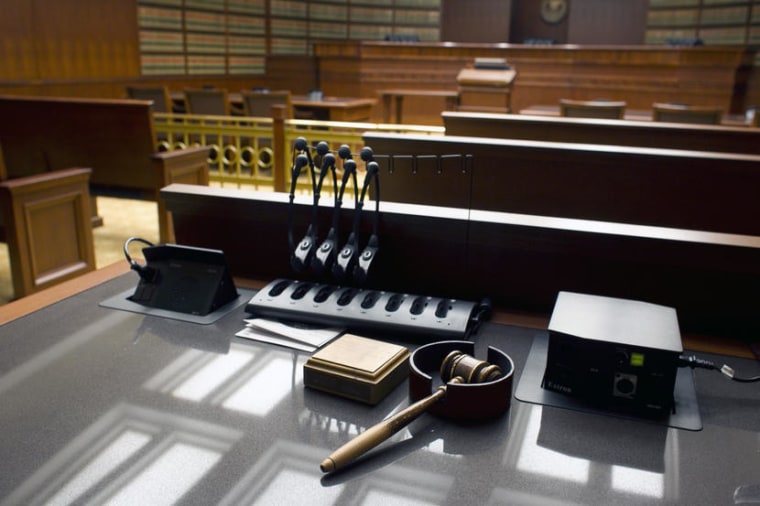As the year nears its end, there's plenty of work for Congress to do. Among other things, lawmakers are working on a spending package that would prevent a shutdown, an economic relief package to serve as a lifeline for families, and a defense package that funds the U.S. military.
But despite these and other legislative tasks, the Republican-led Senate yesterday found time to confirm another one of Donald Trump's judicial nominees. GOP senators did the same thing a day earlier. And the day before that. And the day before that.
If this seems extraordinary given the fact that Donald Trump just lost a presidential election by 7 million votes, and most of the electorate clearly doesn't want him in office, it's not your imagination. Roll Call recently highlighted "the norm-breaking rush to get GOP-approved picks through," utilizing tactics without modern precedent.
With only one exception, post-election confirmations of judges nominated to lifetime appointments by a president whose party has lost the White House hasn't happened since the election of 1896 when William McKinley was elected and the Senate confirmed Grover Cleveland's picks.
Russell Wheeler, president of the Governance Institute and a visiting fellow at the Brookings Institution, told Roll Call, "It's unprecedented to confirm lame-duck presidents' nominees after the election."
Senate Majority Leader Mitch McConnell (R-Ky.), however, does not care about precedent, tradition, or propriety. What he cares about is stacking the federal judiciary with young, conservative ideologues who'll keep moving American jurisprudence even further to the right for the next several decades.
This is not just a matter of a Republican White House nominating jurists confirmed by a Republican-led Senate. Trump-backed judges tend to be ... different. The New York Times reported yesterday:
Early this year, The New York Times reviewed more than 10,000 published decisions and dissents during the first three years of the Trump administration. It found that the president's picks for the appeals courts were more likely than past Republican appointees to disagree with peers selected by Democrats, and more likely to agree with their Republican colleagues, suggesting they were more consistently conservative. An updated analysis of more than 1,700 opinions published over the first six months of the year shows that the trend has intensified as the judges have established a larger body of work.
It may be tempting to think, in the wake of President-elect Joe Biden's victory, that Democrats will soon have an opportunity to reverse the trend. In practical terms, however, that's wishful thinking: if Republicans maintain control of the U.S. Senate, they'll ignore the incoming White House's judicial nominees, just as the GOP did in the final two years of Barack Obama's presidency.
What's more, McConnell & Co. have been so hyper-aggressive on this front that once Biden is inaugurated, he'll find that there simply aren't that many judicial vacancies to fill.
As of this morning, if my count is right, Trump has successfully put three conservatives on the U.S. Supreme Court, 54 conservatives on the appellate bench, and 173 conservatives in district courts. NBC News noted over the summer, "In total, Trump has appointed more than one-fifth of the entire judiciary, which may exceed one-fourth this year."
The nation will be living with the consequences for much of the 21st century.
